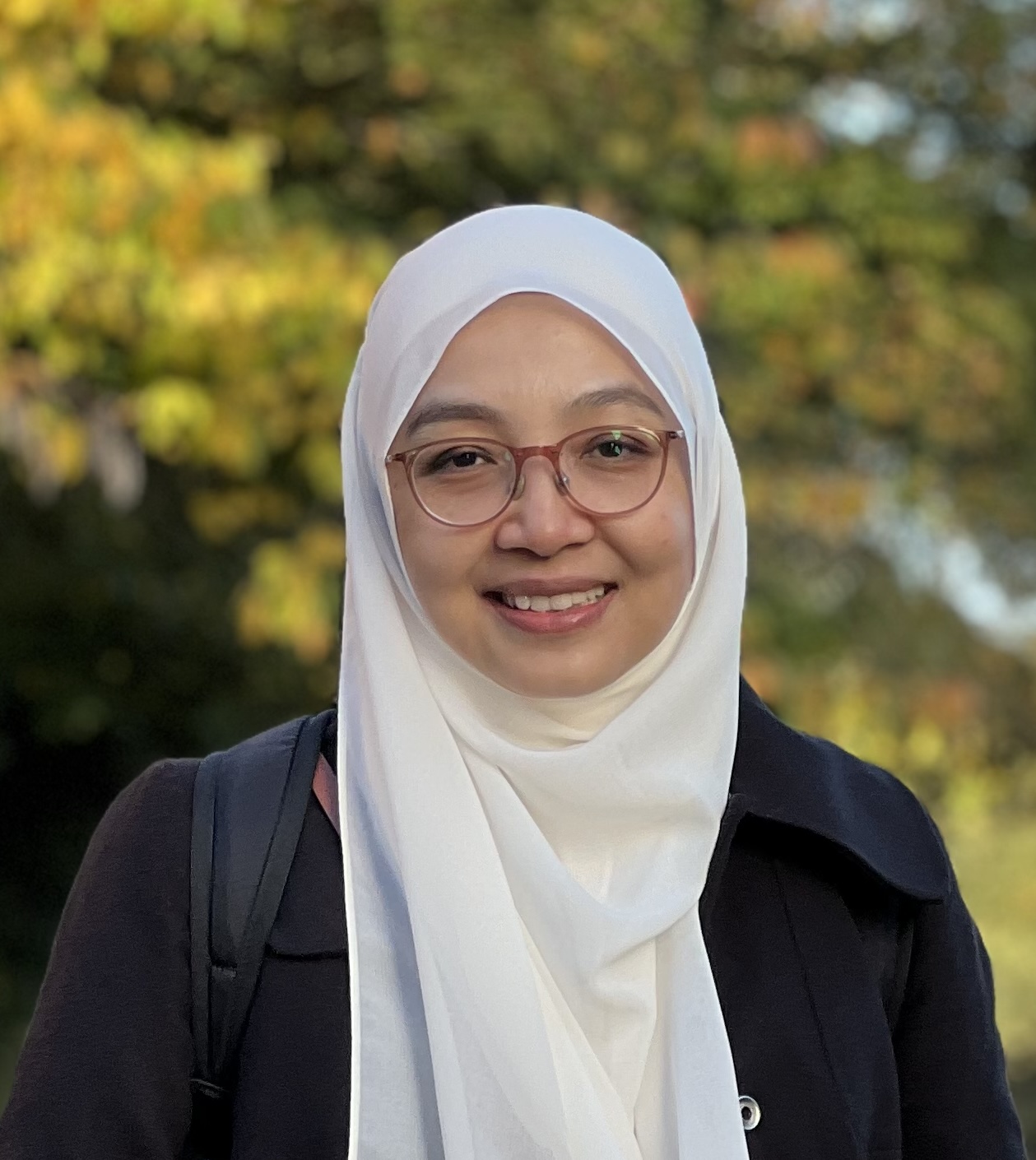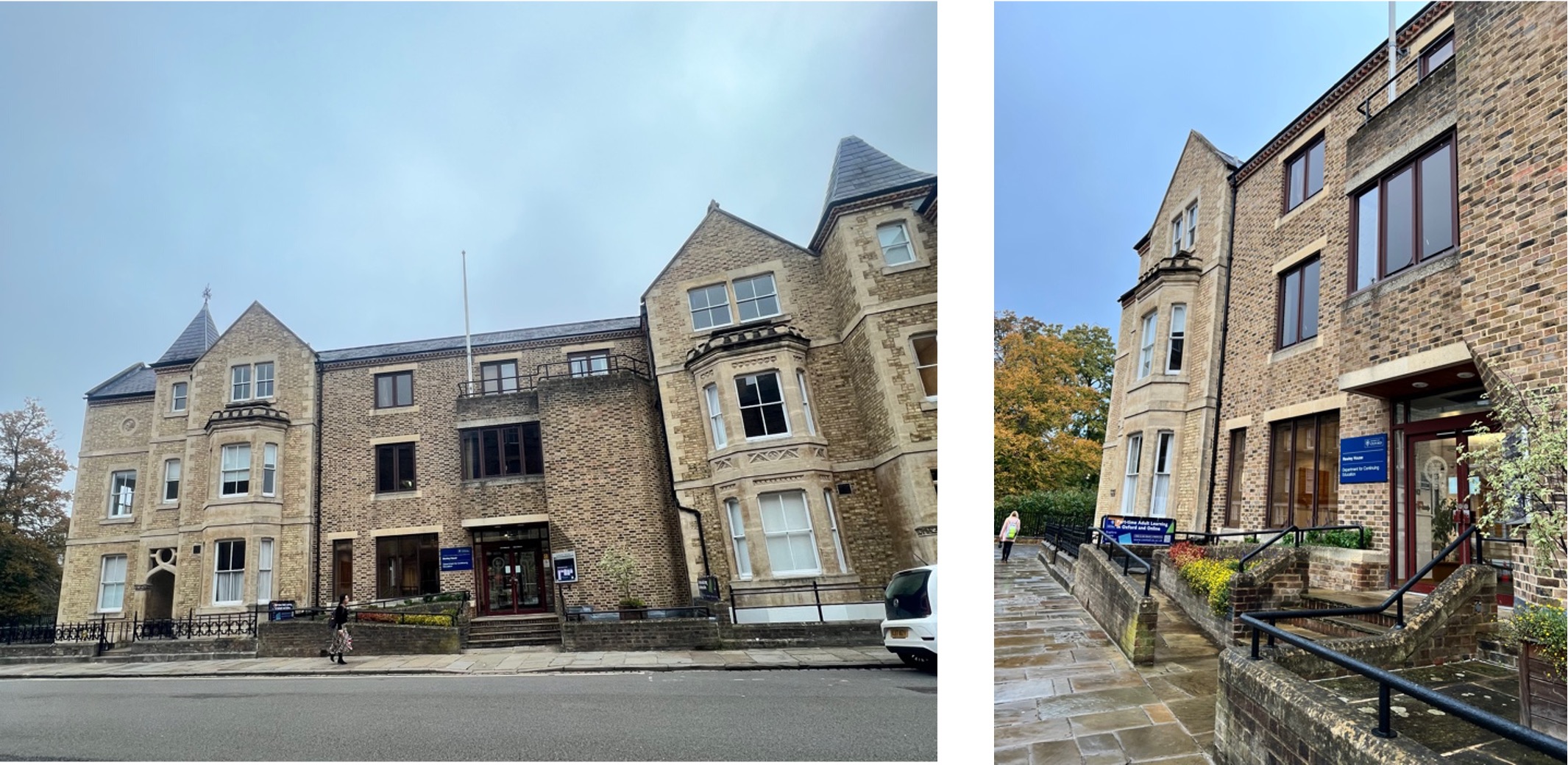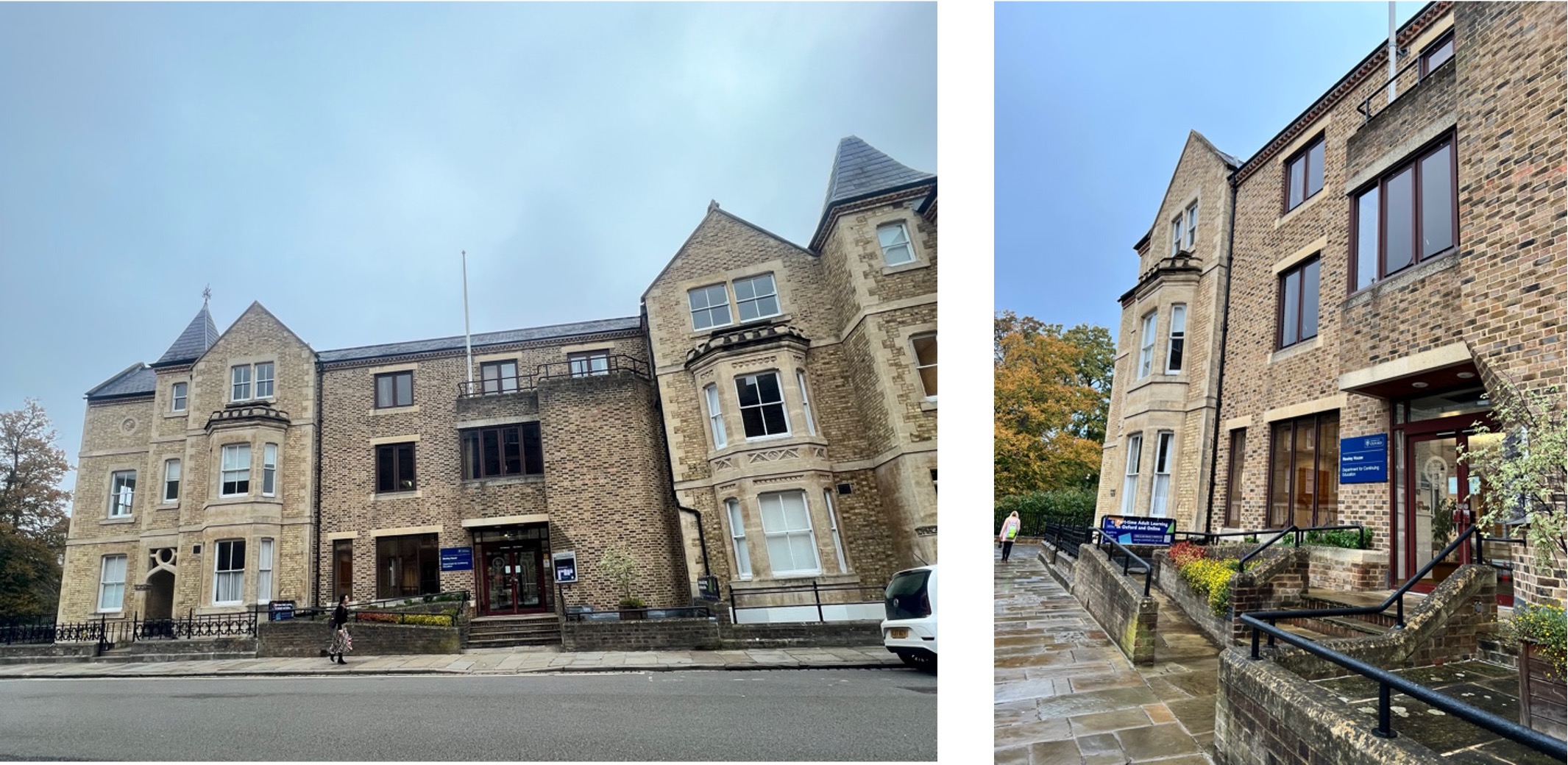UNIVERSITY OF OXFORD, October 23 2023 -

Photo By Dr Asmida Isa
Author: Dr Asmida Isa
On 23rd to 27th October 2023, I had the opportunity to attend Human and Veterinary Vaccinology course held at the University of Oxford, United Kingdom. The course sessions took place in a classroom at the Department of Continuing Education within Rewley House, located in Wellington Square, Oxford, UK, on day 1, 2, 4 and 5. On day 3, the course was conducted at the Pirbright Institute in Woking, UK, requiring a 2-hour bus journey.
Photo By Dr Asmida Isa
Rewley House, Wellington Square, Oxford
The participants were with diverse backgrounds, spanning expertise in immunology, epidemiology, molecular biology, veterinary science, and related fields. This inclusive group comprised academics, scientists from private research labs, professionals from health institutions, and individuals engaged in vaccine marketing. Simultaneously, an online session for online participants ran in conjunction with the physical sessions. The course commenced with a warm welcome from Professor Sir Adrian Hill, including a brief introduction of each participant. Professor Hill then provided an overviw of the entire program.
Photo By Dr Asmida Isa
The view from outside of the classroom. The classroom is a new structure built on top of older Rewley building.
Over the five days, the course comprehensively covered various topics in vaccine development, spanning from the identification of target antigens, delivery platforms, adjuvants, and testing to pre-clinical and clinical studies, challenge models used to test vaccines, and manufacturing processes. The sessions were delivered by prominent researchers in the field of vaccinology who had vast experience in dealing and tackling virulent diseases and Covid-19 pandemic. Additionally, discussions included therapeutic vaccines, regulations governing vaccines, and case studies highlighting successful vaccines such as R21 for malaria and multivalent vaccines for poultry viral diseases.
This course has significantly expanded my knowledge in vaccinology, and I feel enthusiastic about the insights gained. Additionally, the visit to the Pirbright Institute provided me with the unique opportunity to immerse myself in a world-class research institution. The potential for collaboration not only offers the prospect of future impactful mentoring and training at their facility but has also sparked new research ideas for me.
In essence, participants were equipped with the knowledge and skills to collaboratively tackle challenges in vaccine design, manufacture, and distribution. This course was thoughtfully designed to address all aspects of vaccinology, brought together individuals from diverse research, business, and medical backgrounds, and should be attended by those who have interest in human and veterinary vaccinology. Finally, a sincere gratitude to the National Institute of Biotechnology Malaysia (NIBM) for generously sponsoring my attendance to this course.





